Understanding the human being is a question that permeates the history of philosophy, and Aristotle, one of the great thinkers of Ancient Greece, made significant contributions to this discussion. This article explores Aristotle's view of what characterizes the human being, delving into the nuances of his thought and how he influenced subsequent generations of philosophers and thinkers.
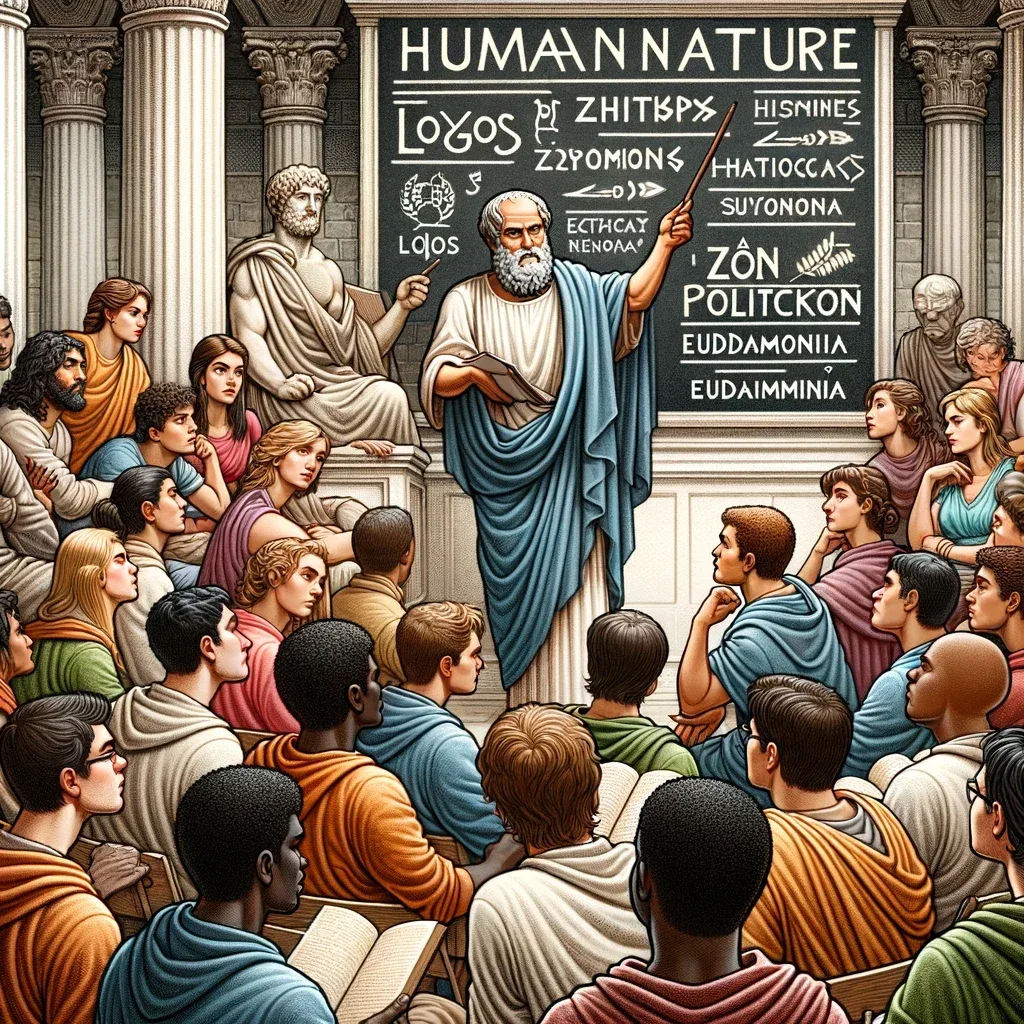
The Rational Nature of the Human Being
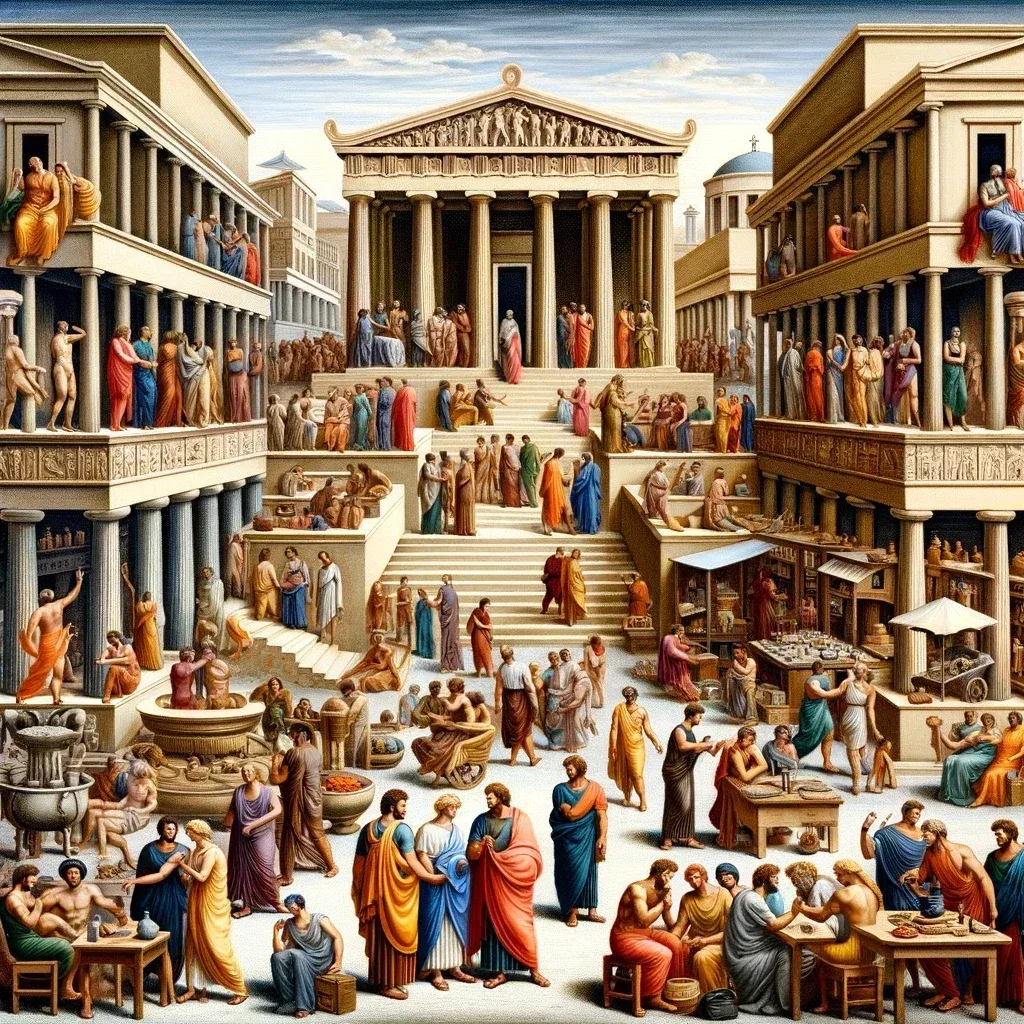
The Logos: Reason and Language
For Aristotle, reason (logos) is what most distinguishes humans from other living beings. The ability to reason allows man not only to live, but to live well, achieving eudaimonia (happiness or flourishing). Reason is closely linked to language, another distinctive aspect, as it is through it that man expresses complex and abstract thoughts.
The Human Being as a “Political Animal”
Aristotle also emphasizes the social nature of the human being, often referred to as the “zoon politikon” (political animal). This designation does not just refer to participation in political activities, but to the innate inclination of human beings to live in community and cooperate with others for the common good.
Ethics and Morality
The ability to make moral and ethical judgments is also central to Aristotle's characterization of the human being. For Aristotle, ethics is not a theoretical science, but a practical one, focused on action and virtue. Ethics aims to pursue a good life, guided by reason.
The Aristotelian Psychology of the Human Being
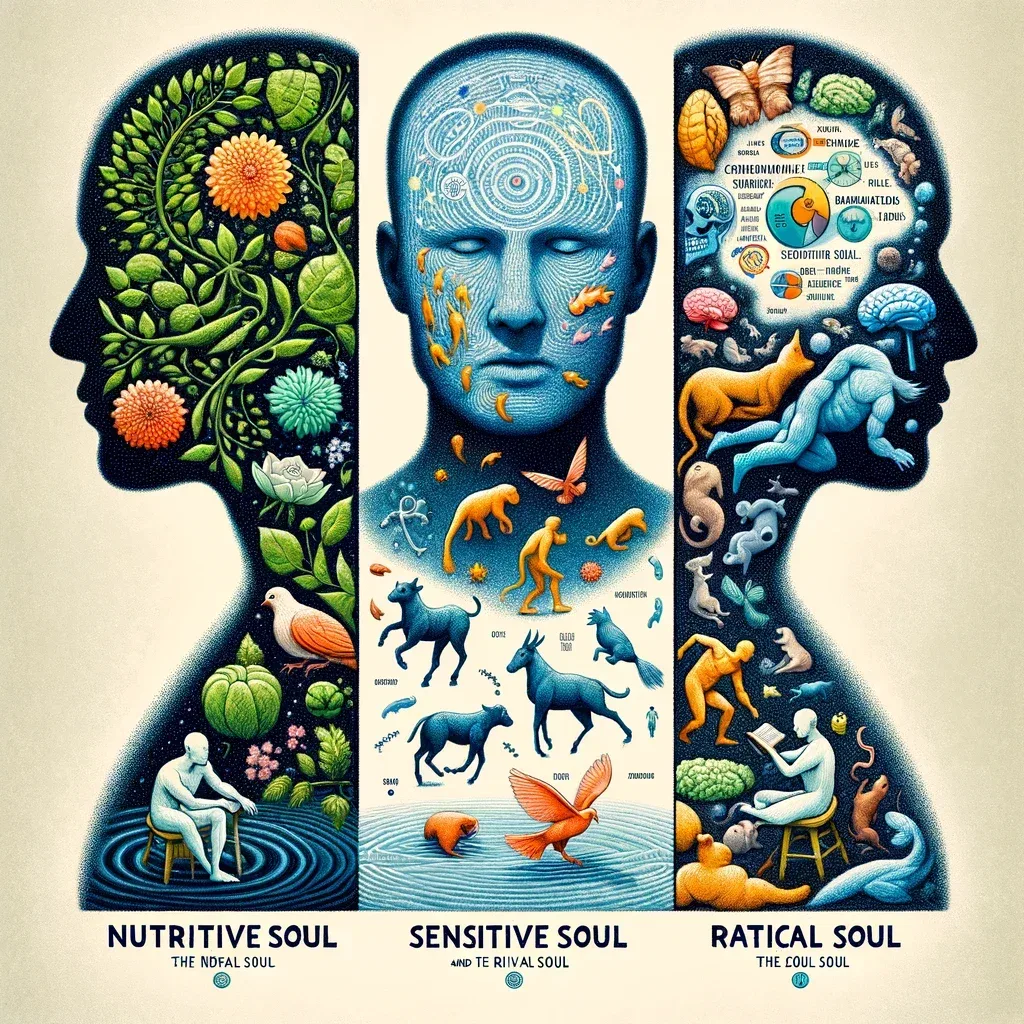
The Soul as a Vital Principle
Aristotle distinguishes three types of soul (psyche): nutritious (plants), sensitive (animals) and rational (human beings). The rational soul includes the capabilities of the other two, but also possesses the unique ability to think and reason.
Emotions and Reason
Unlike his master Plato, Aristotle does not see a rigid opposition between reason and emotion. In his view, emotions play a crucial role in human life and can be guided and moderated by reason.
The Body and the Soul
For Aristotle, the human being is a unity of body and soul. The soul is the form of the body, and it is impossible to understand one without the other. This holistic view contrasts with the Cartesian duality that would emerge later.
Political and Social Implications
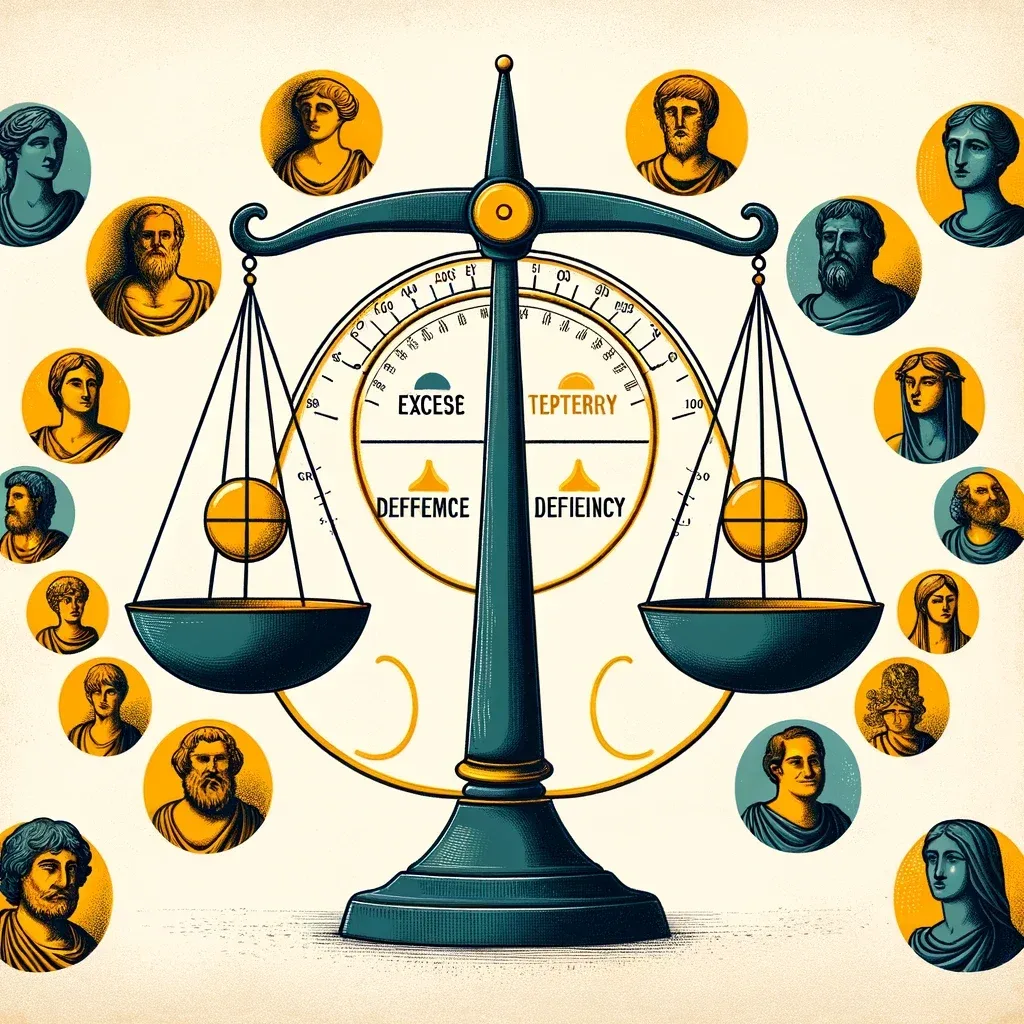
The City-State (Polis)
Aristotle understood that the city-state was the natural setting for human development. The polis not only provides the basic necessities of life, but is also the space for the realization of virtue and happiness.
Justice and Common Good
The role of justice and the search for the common good are fundamental in Aristotelian politics. For him, a good political system is one that seeks the good of all citizens, not just one part.
Education and Character Training
Aristotle also highlighted the importance of education and character formation. He believed that virtue is not innate, but can be developed and strengthened through practice and education.
Contributions and Influence on Modern Philosophy
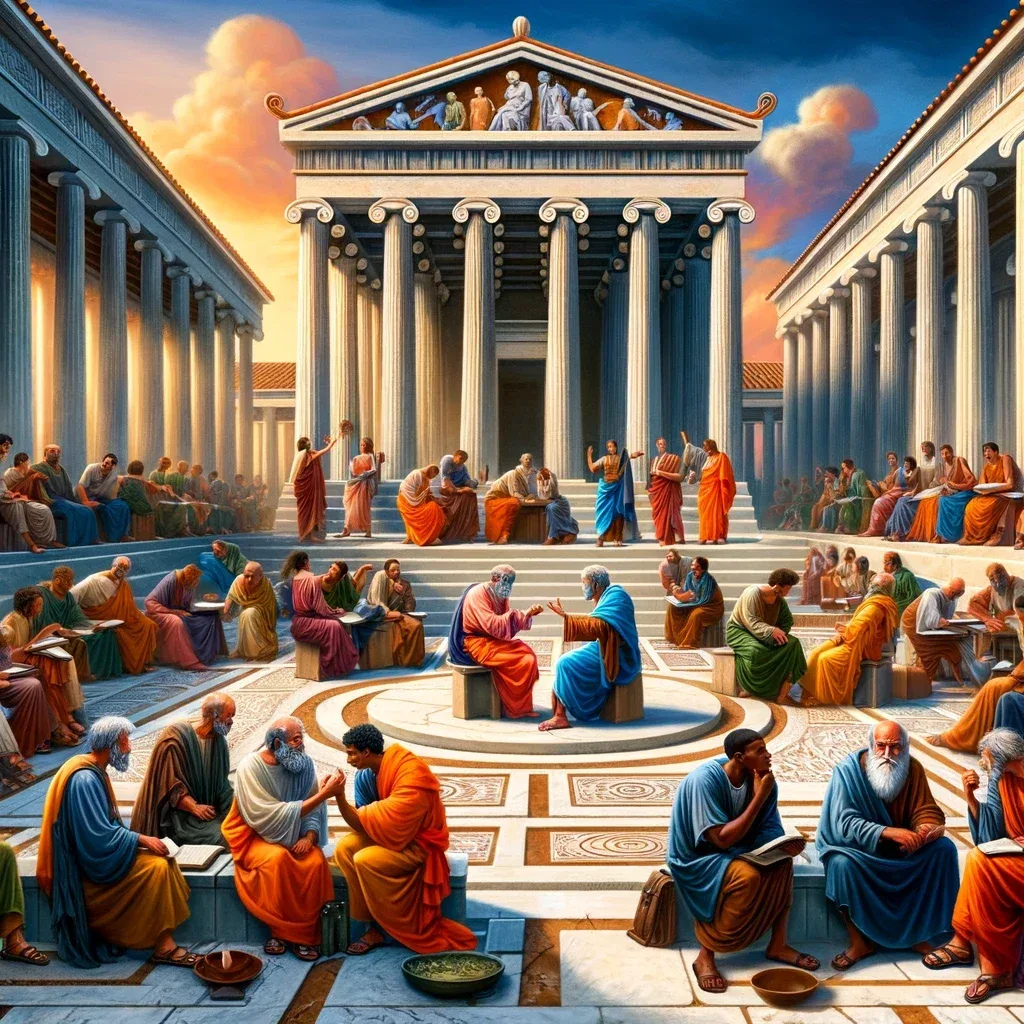
Influence on Western Thought
Aristotle's ideas profoundly influenced Western thought, shaping fields as diverse as ethics, politics, metaphysics, and biology.
Contemporary Relevance
Aristotelian concepts of ethics, politics, and human psychology remain relevant and are frequently explored in contemporary debates in philosophy, political science, and psychology.
Modern Criticism and Discussion
Although some of his views have been challenged or modified over the centuries, Aristotle's legacy remains a crucial starting point for many modern philosophical and scientific discussions.
Conclusion
Aristotle's vision of the human being is rich and multifaceted, covering rational, emotional, social and political aspects. His understanding of the human being as a rational and social being, endowed with a unique capacity for ethics and morality, continues to influence and inspire modern thought. Aristotle's contributions remind us of the complexity and depth of human nature, a topic that continues to fascinate and challenge philosophers and thinkers to this day.
Frequently Asked Questions about Aristotle's View of the Human Being
Below, we present a detailed FAQ with the 10 main questions about the text “According to Aristotle: What characterizes the human being?”. These questions and answers seek to clarify key aspects of Aristotelian philosophy and his vision of humanity.
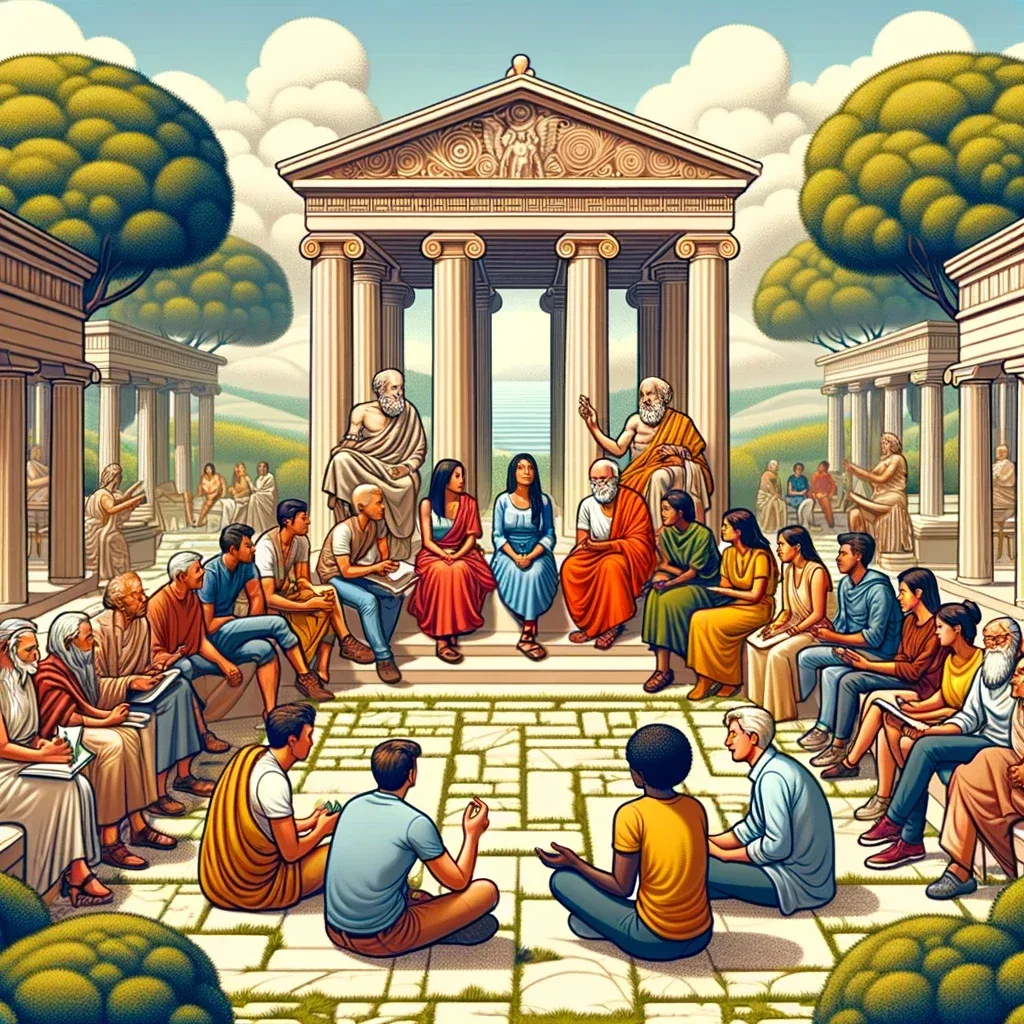
1. How does Aristotle define the rational nature of the human being?
2. What does the expression 'zoon politikon' mean in relation to human beings?
3. How does Aristotle see the relationship between emotions and reason?
4. What is Aristotle's view of the human soul?
5. How does politics relate to human nature according to Aristotle?
6. What is the importance of education in Aristotle’s view of the human being?
7. How did Aristotle's ideas about the human being influence Western thought?
8. Does Aristotle consider that happiness is achievable for human beings?
9. What does Aristotle say about justice and the common good?
10. Does Aristotle see the human being as a passive or active being in his existence?
This FAQ offers an in-depth look at Aristotle's ideas about the human being, covering aspects of his ethical, political, and psychological philosophy. The questions and answers were designed to provide a clear and accessible understanding of Aristotle's vision.





